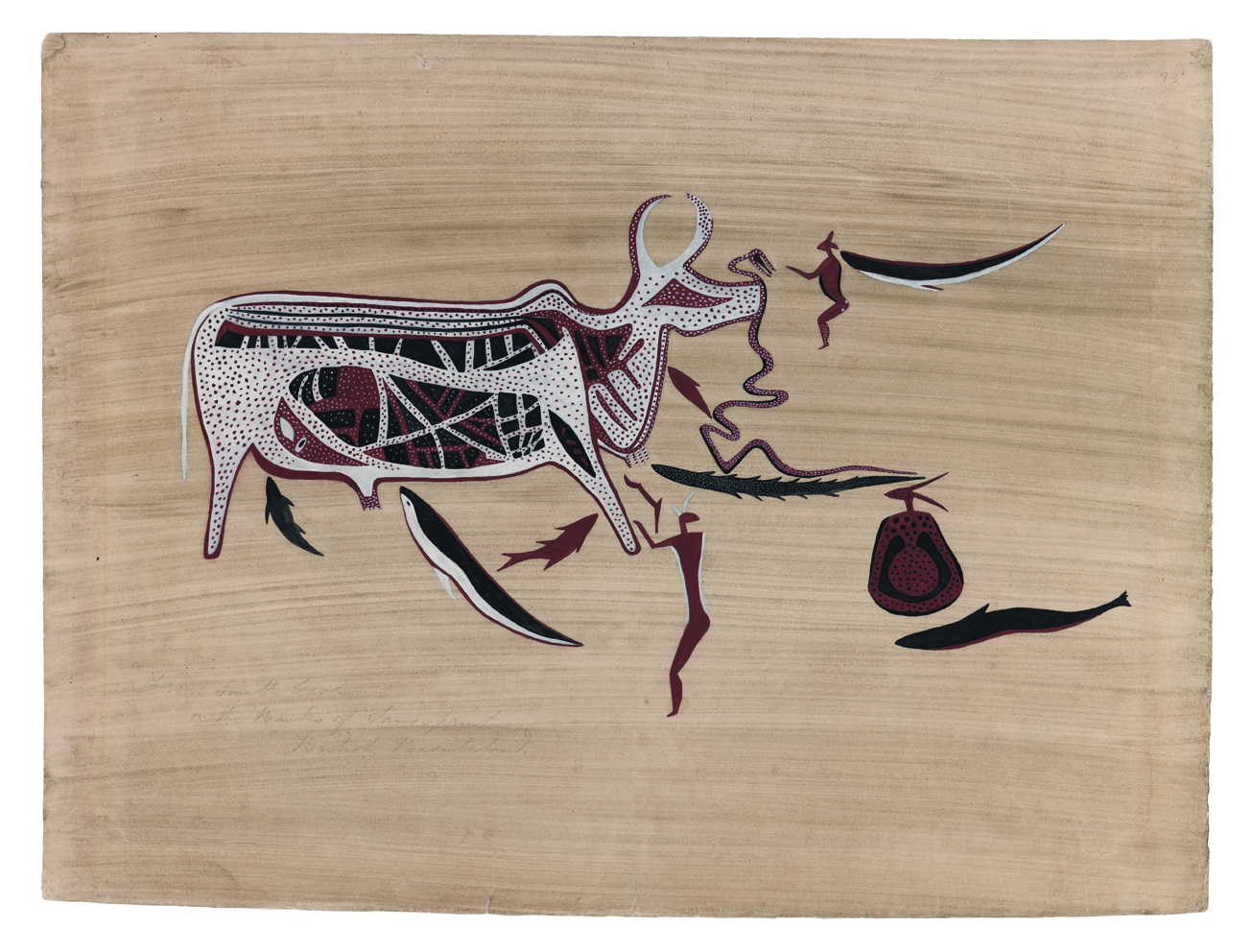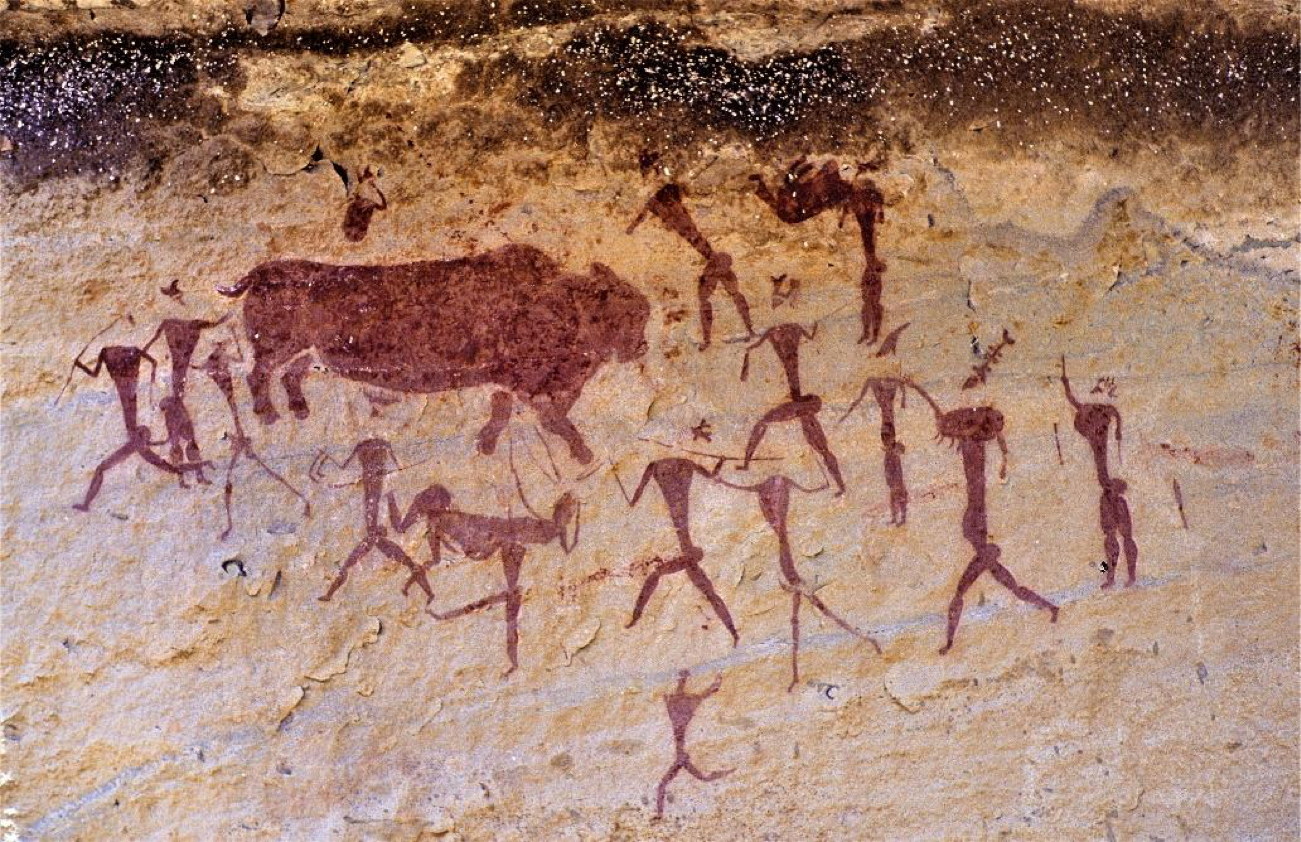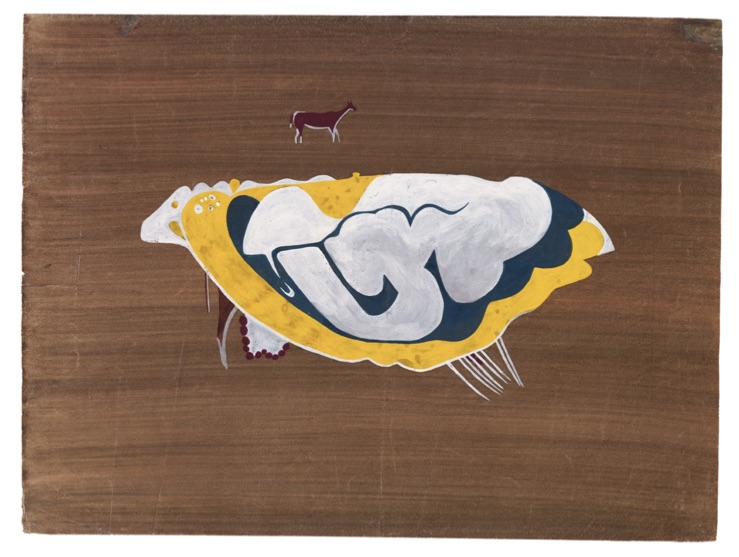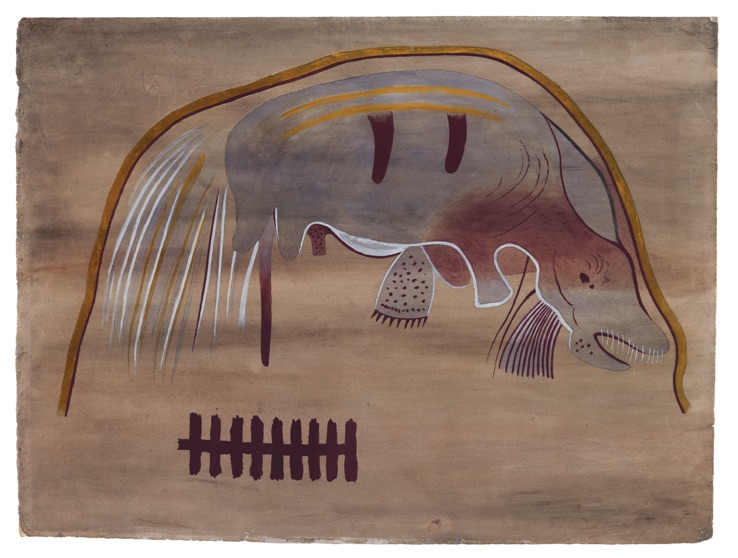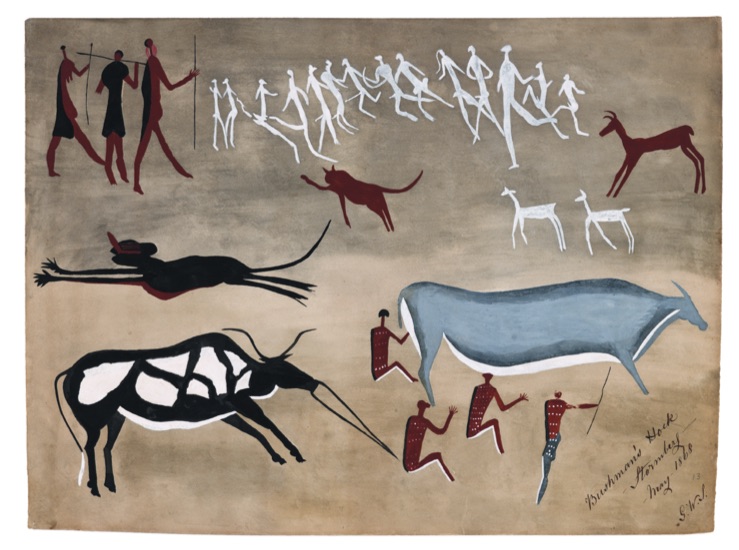ǃkhwa, the Rain Bull, is a shadowy but important figure in the ǀxam texts. His name simply means ‘water’ or ‘rain’. He lives in the waterhole – in fact he is the water in the waterhole – but also traverses the sky as a rain cloud, conceived of as an eland bull. The streams of rain emanating from the cloud are his legs, on which he strides across the landscape. The imprint of raindrops in the sandy earth are the rain’s footprints. The female rain’s footprints are broad and shallow, those of the male rain narrow and penetrating.
Strangely, given the importance of rain, ǃkhwa himself is not an especially prominent figure in the narratives, although his power and presence may be implicit in the numerous accounts that deal with rain and water. For example, various creatures, including some snakes and birds, chameleons, water tortoises and other creatures, are described as ‘rain’s things’, or as belonging to the rain (or water, since the term is the same). It could be that this term merely means that they are associated with watery habitats, but there are hints that some of these creatures are associated with the death-dealing powers of ǃkhwa himself and are somehow his allies and agents.
ǃkhwa’s principal appearances in the narratives are in those concerning young female initiates (‘new maidens’) who disobey the restrictions imposed upon girls at puberty, including seclusion in a special hut and particular dietary requirements. A girl who is tired of the special food she is given goes to the water and kills a water’s child to eat. ǃkhwa, in the form of a whirlwind, envelops her and her family and takes them into the waterhole. Girls who meet this fate are seen as frogs, or as the reflection of stars upon the water’s surface. The need for girls to enter seclusion is because ‘When she is a maiden she has the rain’s magic power’, and if she misbehaves, or ‘scolds’ others and snaps her fingers at them (apparently like the sound of thunder or lightning), then ǃkhwa is angered and becomes stormy.

From the English-ǀxam dictionary entry for ‘Water’.

From the English-ǀxam dictionary entry for ‘Rain’.

From ‘Swallows’, told by Diaǃkwain to Lucy Lloyd on 15 December 1875.
